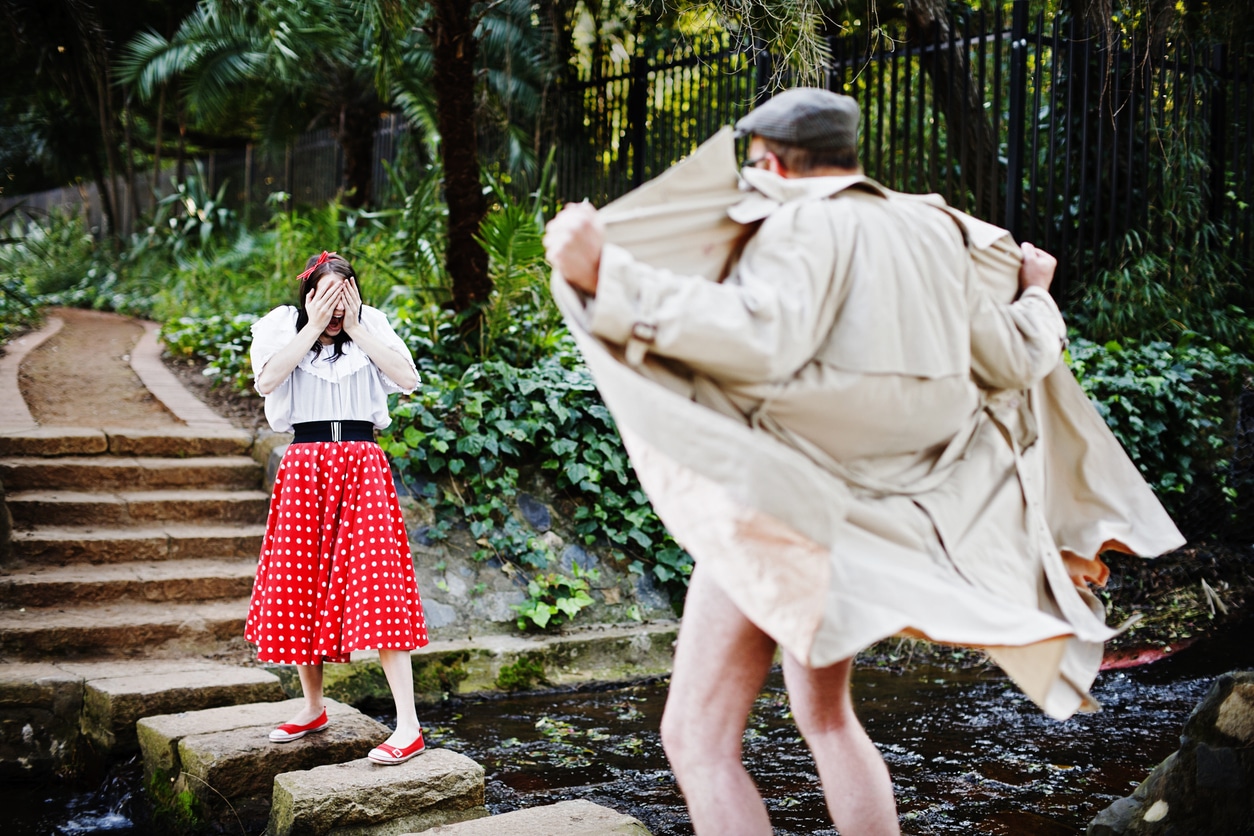Understanding How Indecent Exposure Charges Work and What You Need to Know If You’ve Been Accused
Indecent exposure may seem like an innocent prank, but it’s something that law enforcement officers and prosecutors in Colorado take seriously. The number of arrests related to indecent exposure has been increasing in recent years in Colorado, and those who are arrested can even face felony charges and may potentially have to register as sex offenders — both of which can have long-term consequences for the rest of the person’s life. If you’re facing charges related to indecent exposure, contact Daniel M. Murphy, P.C., right away to find out how he can help.
What Counts as Indecent Exposure?
To understand the charges against you and your defense options, you first need to know how the state of Colorado classifies indecent exposure. There are two ways to be charged with indecent exposure:
- Exposing genitals. A person who knowingly exposes their genitals where someone can see can be charged with indecent exposure if the act is likely to cause “affront or alarm” and the intent was to “arouse or to satisfy the sexual desire of any person”
- Masturbating in public. Knowingly masturbating where others can see is a criminal offense if the circumstances are such that it is likely to offend or alarm someone else. The legal definition of masturbation according to the Colorado Revised Statutes is “the real or simulated touching, rubbing, or otherwise stimulating of a person’s own genitals or pubic area for sexual gratification or arousal of the person, regardless of whether the genitals or pubic area is exposed or covered”
It’s common for people to misunderstand indecent exposure charges and believe that they can only be brought against someone if they are acting in some nefarious manner. However, it’s also possible to be charged with indecent exposure for actions such as urinating in public, such as in view of others on a hiking path or in a park, or public streaking, such as at a sports game or on a college campus.
Other common situations that may result in indecent exposure charges are topless or nude sunbathing, skinny-dipping, flashing or mooning someone, or taking nude or seminude photographs where other people may see.
When Does Indecent Exposure Become a Felony?
In most cases, indecent exposure is a Class 1 misdemeanor charge. However, some exceptional circumstances can result in felony charges. This crime becomes a Class 6 felony when someone has had at least two previous convictions for the same or a similar offense, including if the conviction happened in another state.
Indecent exposure can also be a felony charge — even for a first offense — if the person commits the act with the knowledge that there was a child present who could see. In this case, the legal definition of a child is someone under the age of 15. In this situation, the defendant must also be older than 18 and be at least four years older than the child.
What Are the Potential Penalties of an Indecent Exposure Conviction?
The consequences someone faces if they are convicted of indecent exposure depends on whether the charge is a misdemeanor or if it was escalated to a felony. A Class 1 misdemeanor is punishable by jail time, which is usually less than one year, and a fine. The fine for a Class 1 misdemeanor is generally less than $1,000, and it’s possible for defendants to be sentenced to either jail time or a fine or both, depending on the circumstances.
If the conviction was for a Class 6 felony, the consequences are more severe. Defendants can be sentenced to up to 18 months incarceration and a fine between $1,000 and $100,000. There is also a mandatory one-year parole period.
In some cases, it’s possible for someone who is convicted of indecent exposure to be on the sex offender registry. If this information is public, it can cause severe repercussions in other areas of your life. Being categorized as a sex offender can affect your employment opportunities, restrict you from living in certain areas, and cause problems in your relationships with others in the community.
What Are the Defense Options for Indecent Exposure Charges?
There are two critical parts of the indecent exposure statute that can help many defendants when they’re facing prosecution. An indecent exposure conviction requires that the defendant acted knowingly and with sexual intent. However, many cases lack one of these two key elements. For example, if you were not aware that your zipper was down and that you were exposed, this can be used in your defense. Similarly, if you were under the influence of alcohol and urinated in public, a defense attorney can argue that there was no sexual intent in the act.
These cases also often hinge on witness testimony, which can be unreliable. It’s possible for someone to be mistaken about what they saw or the intent behind the act. For example, if the alleged incident occurred at night, it’s possible the witness was wrong about the defendant’s genitals being exposed at all. An experienced defense attorney knows how to find inconsistencies in witness testimony and use that for your defense.
If you’ve been charged with indecent exposure, you need the help of an experienced defense attorney right away. These are serious charges, and they require a strong defense to protect your freedom and future. Call 303-996-8998 to schedule a consultation and find out how Daniel M. Murphy, P.C., can help you fight back.




